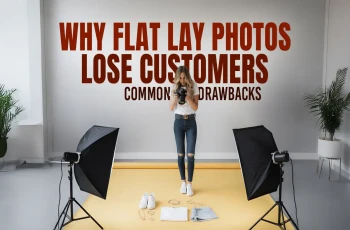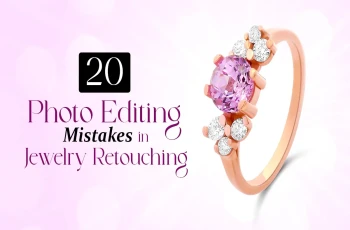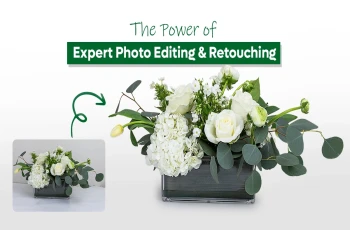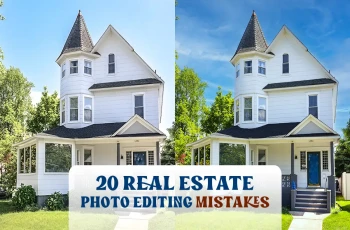
Low Angle Photography- 7 Stunning Ideas With Helpful Tips

Read | Loved by: 37373
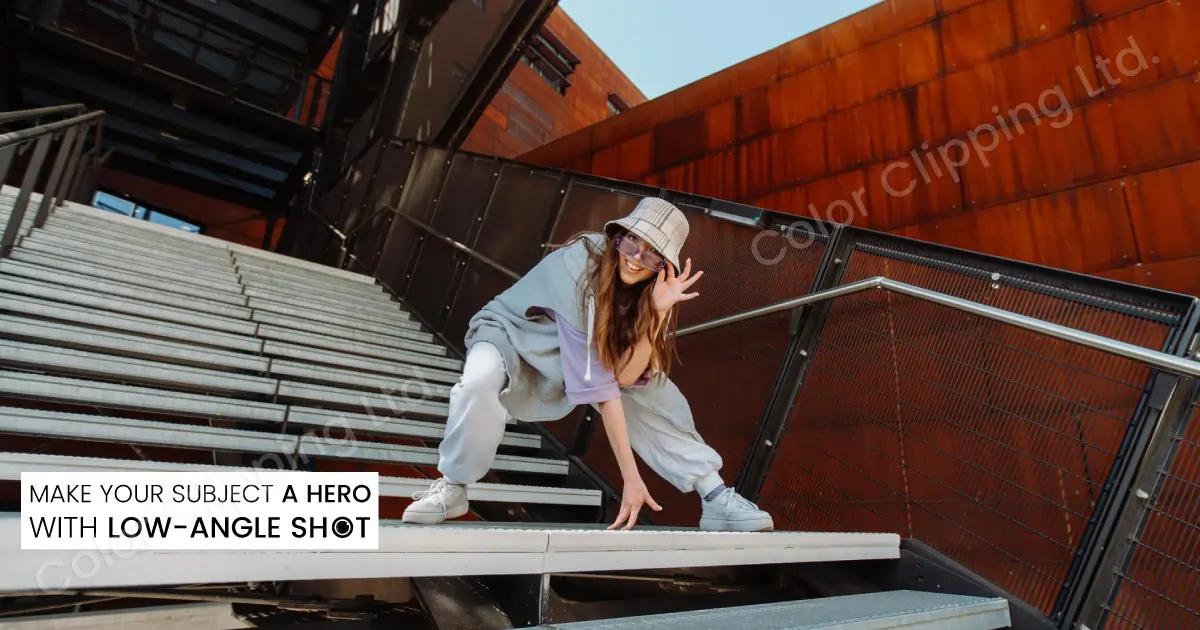
Know what makes low angle shots different? It shows the subject from below eye level. We usually see things from a regular point of view, however, low angle photography makes the subject appear larger, taller, and closer. For example, Elliot Erwitt’s depiction of dogs where the dogs appear human-like and larger. There, we can see how things appear in their eyes.
So, with this photography style, you can capture interesting, creative, and exciting low angle pics and tell many stories from different angles. Continue reading!
What Is a Low Angle/Frog Perspective Shot?
Have you ever stood on the road and looked above? The buildings, trees, and sky look huge and wide, right? This is what low angle pictures feel like.
In low angle shot photography, the photographer does not take images from the usual perspective but rather focuses on the subject with the camera upward or from the ground. So, not only does the subject appear bigger but also captures more information.
So, in order to take the low angle images, you need to bend down or use a tripod. If you have a small tripod, you are all good but you can work with long tripods too. How? Set the camera properly into the tripod then take the center column out and put it in the center upside down. You can lower it as long as the stick goes.
Why Photographing From a Low Angle
Here are some reasons why you should take images from a low angle perspective:
Provide Importance to the Character
In any photography, your subject is your hero however, in low angle pics, they are extra special. How? As the pictures are taken below eye level, the subjects look bigger, grander, and wider making them larger than life. For example, your subject is a pigeon. A pigeon looks smaller from the usual viewpoint, however, with a low angle perspective, it will look like a giant against its surroundings.
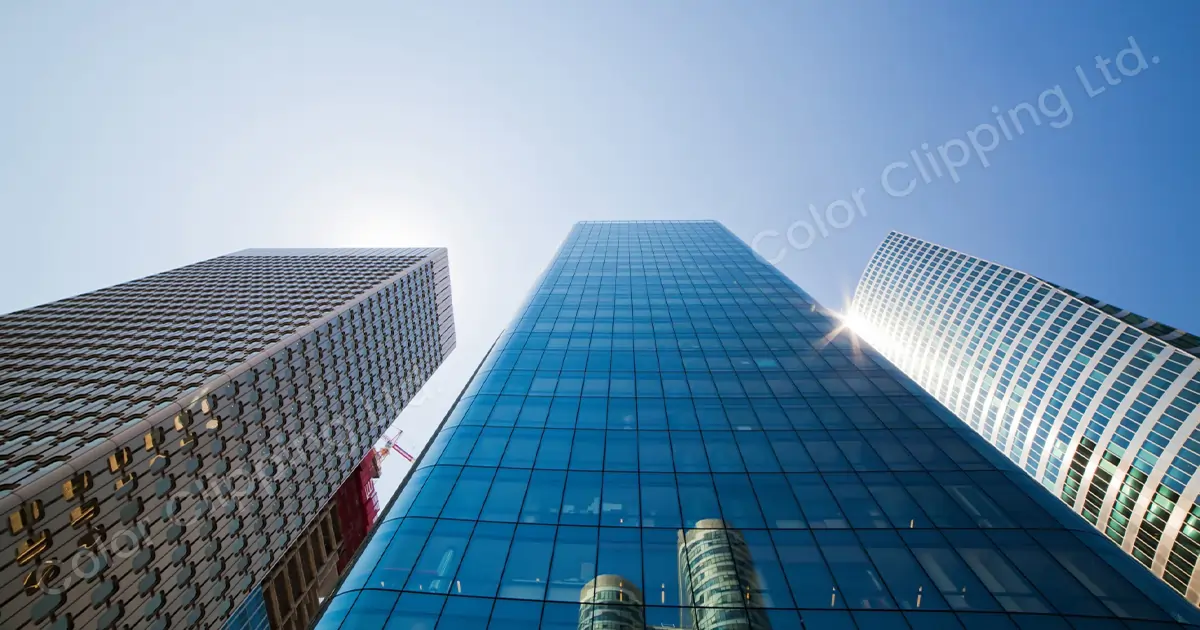
Shows Things From Different Angle
Low angle shots allow us to explore anything and everything from different angles. While it can make the subject a hero by capturing its best features, it can also turn the subject into a villain by showing its bad side. The best thing about this style is that if it is captured correctly, it will tell a story the viewers have never seen before such as a mosquito’s up-close look or ants carrying their food to the nest.
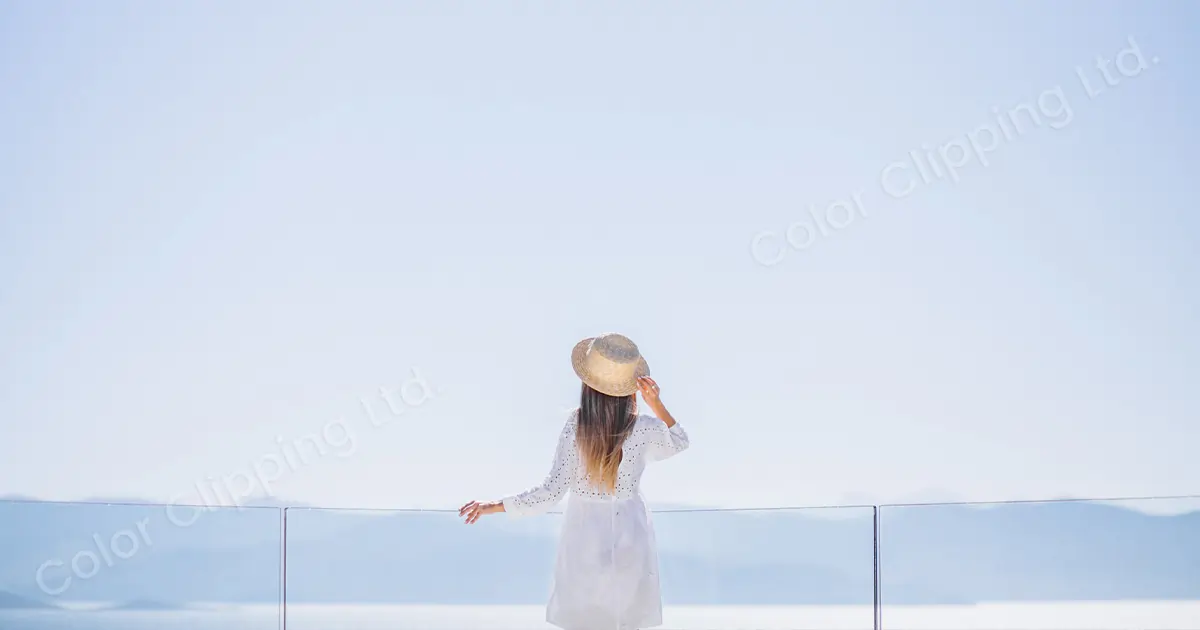
Make the Viewers Question and Look Longer
As people are not used to seeing from below eye level when they see low angle images, they get confused for a second and think is this how things look like from below? So, they look at the picture for a longer period of time to make sense of the image and dissect the meaning. Because every low angle photo has a purpose.
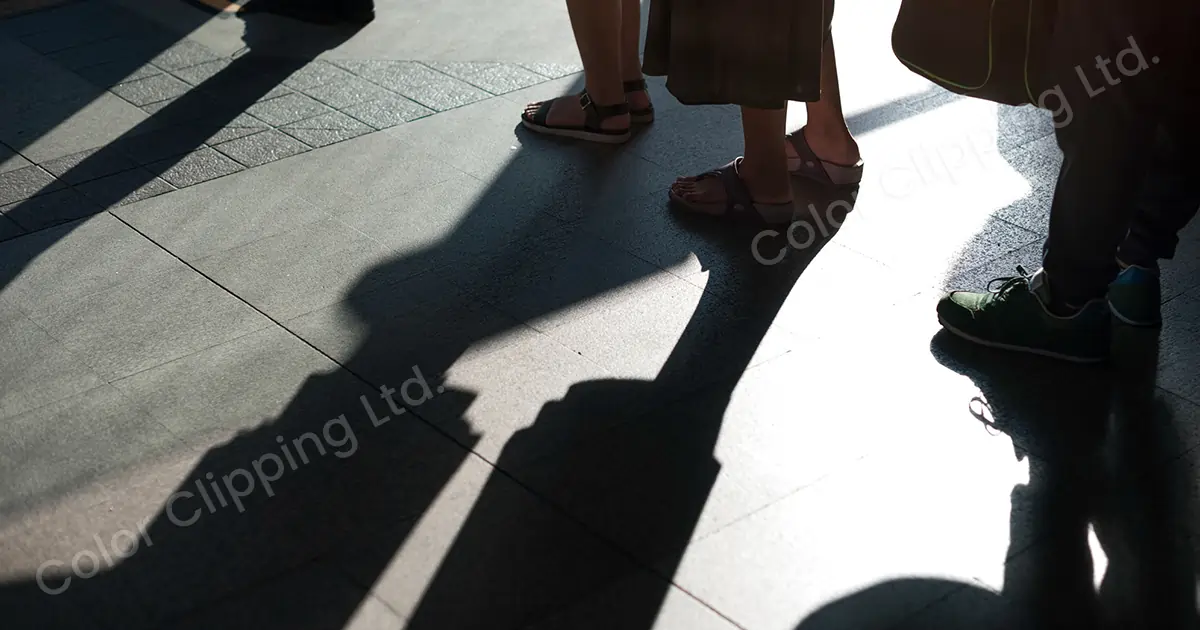
Keep the Focus on the Subject
The biggest advantage of low angle images is they help you keep the attention on the subject by simplifying the background. How? The images that are taken from the usual viewpoint, can have many distracting elements in the surroundings which can divert the audience’s attention from the subject. However, as low angle pics are taken from ground level, it automatically simplifies the background and directs the viewer’s eyes to the subject. For example, you can take the images keeping the sky/wall as the background.
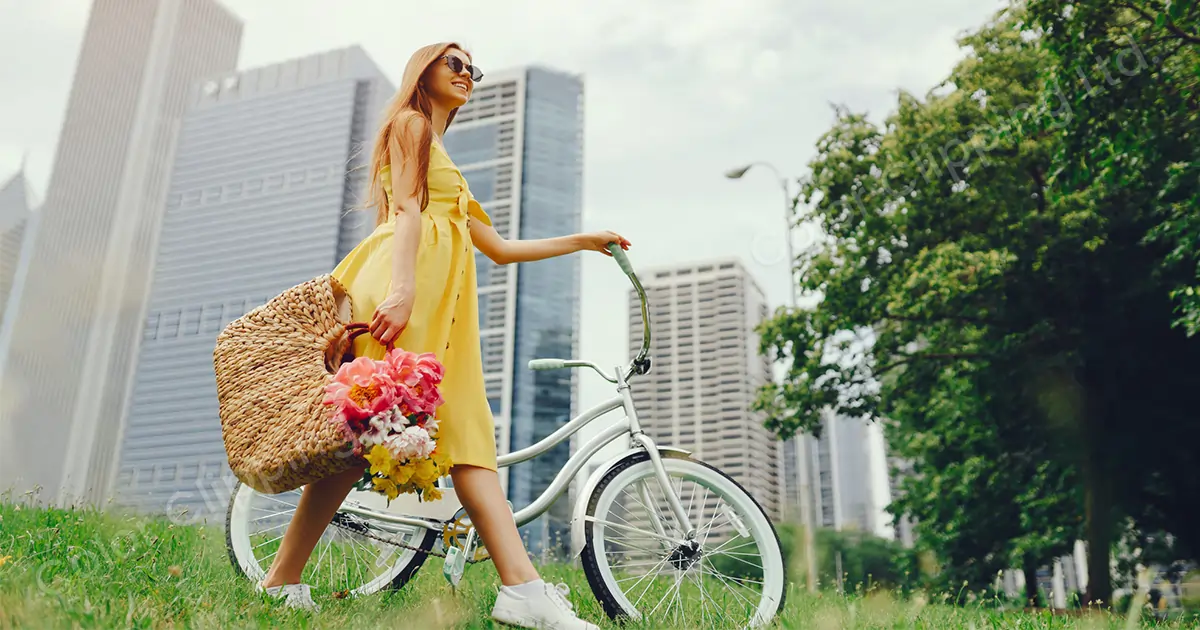
Add More interest to the Scene
Low angle photographers often portray daily activities in a different light with their creativity. For example, taking a lamp picture from the ground or pedestrian crossing the road from both sides. It creates a dynamic and makes the images more interesting. Just think, when we cross the road, do we ever notice how pedestrians' legs are moving? So, low angle pictures show us things we rarely notice in our daily life.
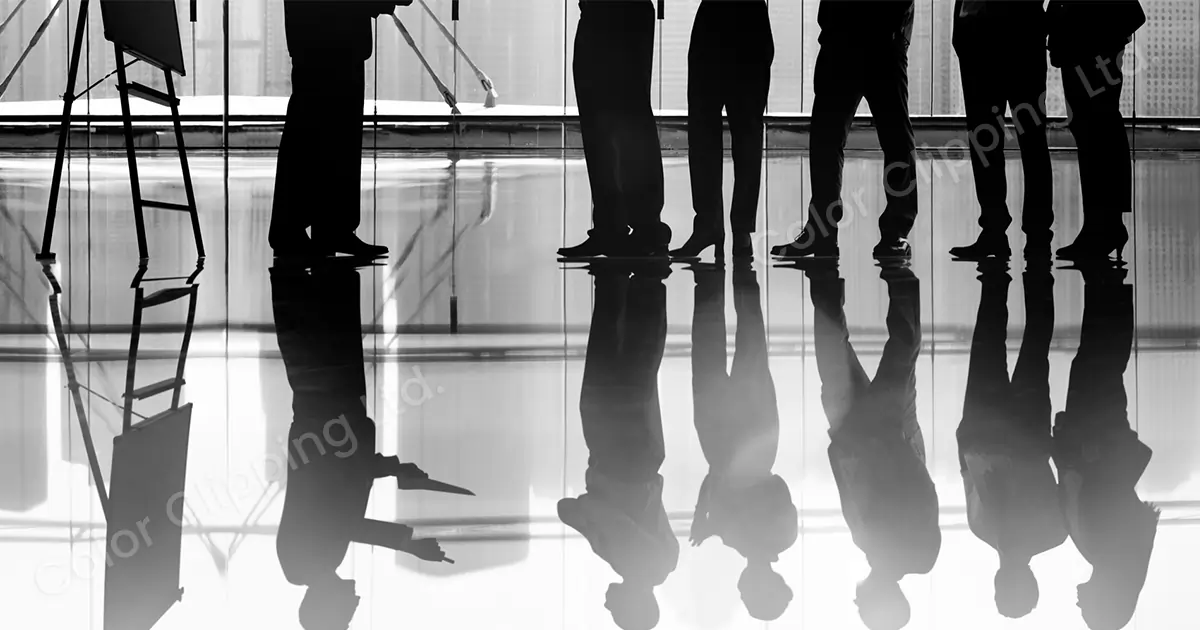
Create Dramatic Effect With 7 Low-Angle Photography Ideas
Low perspective photography area is vast. You can use anything and everything to make your images creative and stand out. However, here are some ideas I follow to create dramatic effects in my low angle pictures.
Capture the Hero in Your Subject
You can make your model a hero of the image with a wide angle lens. Place the camera on the ground level and face it upward or if it is an object, just position it however you want. Capture it from a low angle/ground. You will see the subject is looking bigger than its usual size.
For example, your model’s height is 5′4″ and is slim but you want to show the model as stronger and taller. Take the image at a low angle and your motive will be fulfilled. With a closer shot, they will look wider, and with standing at an angle, they will look taller and stronger.
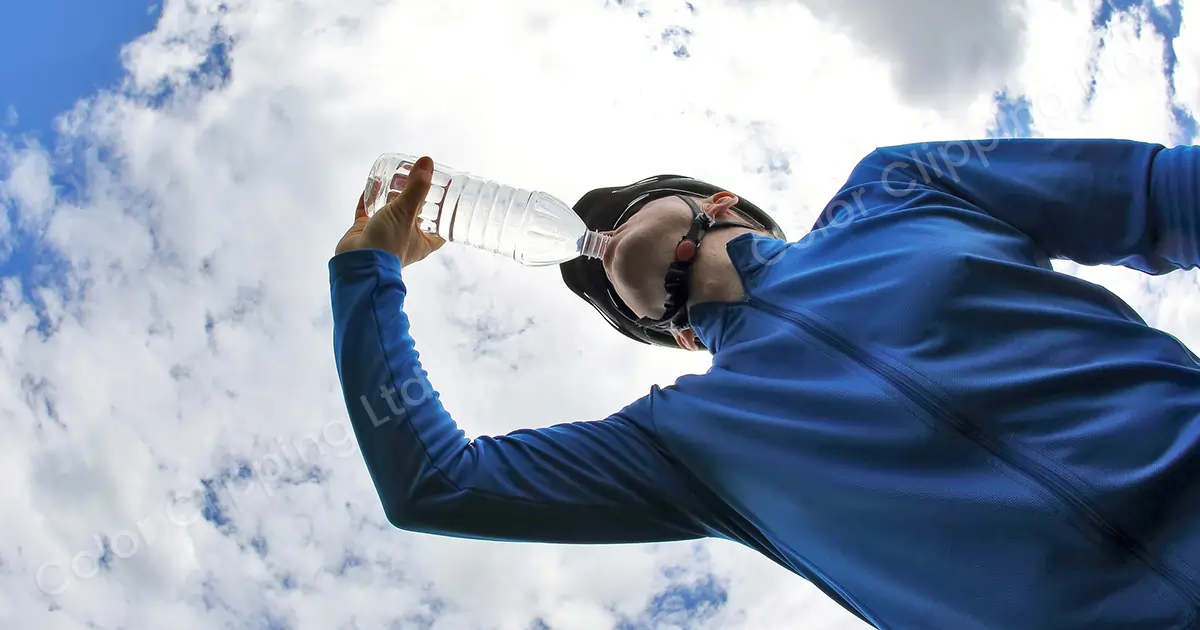
Lead Viewer’s Eyes to the Subject
You can use “leading line” technique to guide viewer’s eyes to the subject. The leading line is anything in the setting that will directly point toward the subject. Place the camera below eye level or on the ground and capture the image following the line.
You can use anything like railway, sunlight, staircases, etc. For example, a man is going up the stairs and his shadows are guiding the viewer’s focus toward the man. However, soften the shadows by retouching.
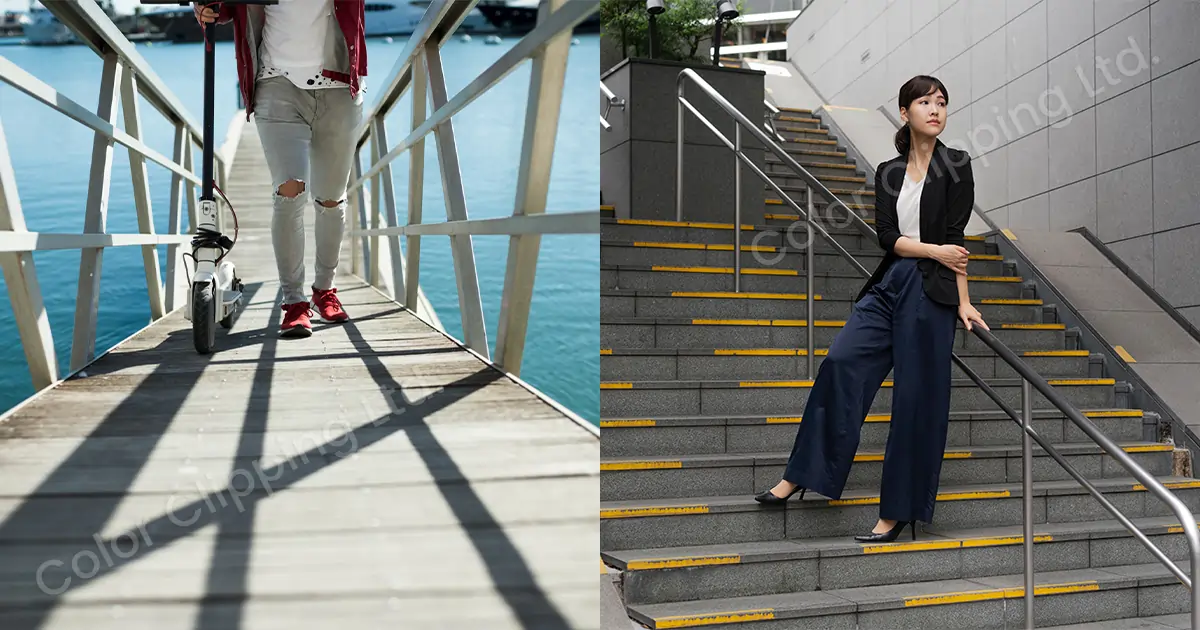
Make the Subject Look Into the Camera
To capture this pose, place the camera on the ground and make the model look directly into the camera. It is like they are talking to the audience or trying to tell them something. It can create a very dramatic scene depending on how you instruct and capture the image.
You can try other things with this pose such as placing the camera in the suitcase and telling the model to look for things in the suitcase. It will make the audience wonder what is the subject looking for.
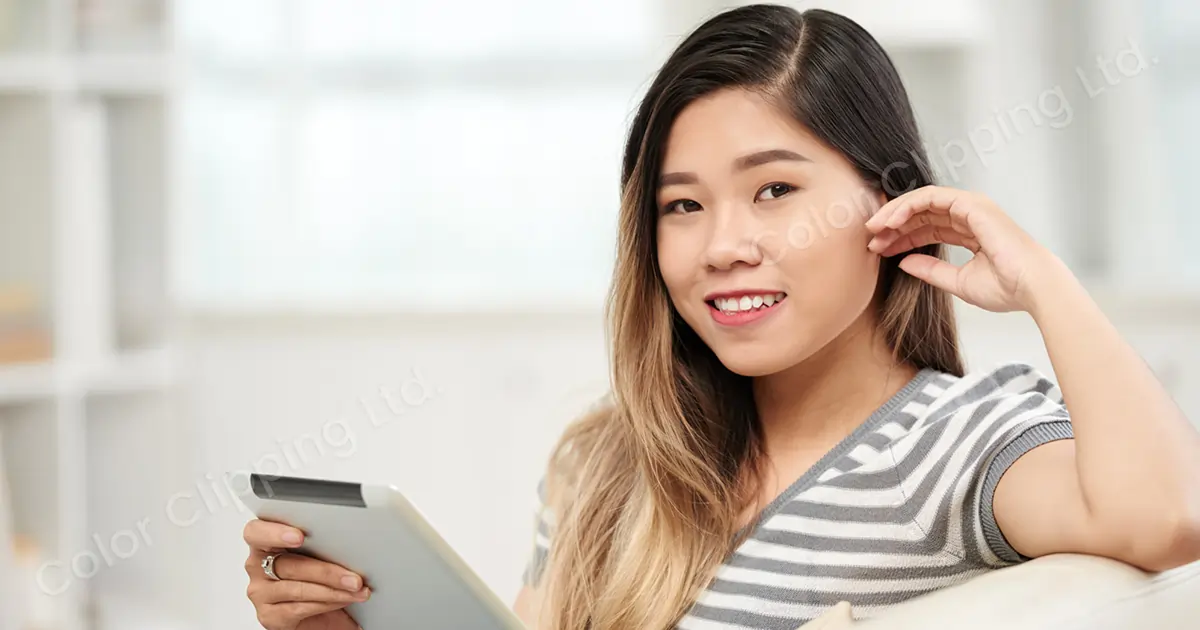
Subject Run/Walk by or Step on the Camera
For this low-angle shot, you need to get down the dirt. Either you lay down on the grass/road or place the camera on the ground. Tell your subject to run or walk by the camera. While they run, click the shutter-release button. It will look like a motion picture.
You can also ask them to pretend to step on the camera. The subject will look like a giant going to step on viewers. It will be a funny picture.
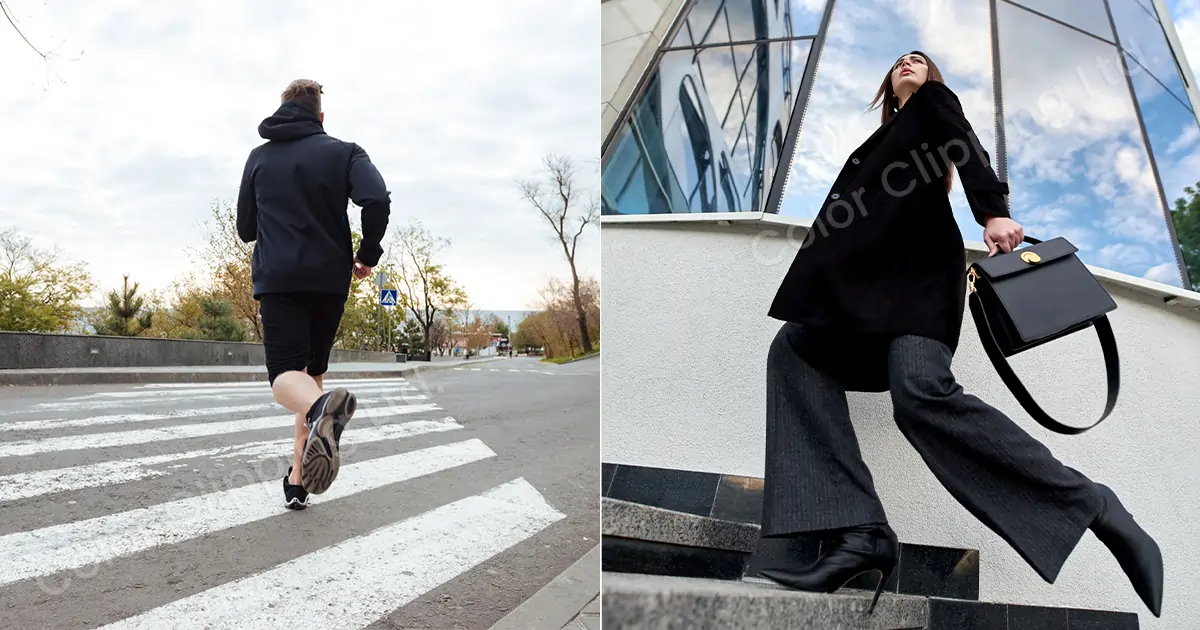
Vehicle Crossing by the Camera
Just like a model walking by the camera, you can also capture cars passing by the road. You can take it in steps like the vehicle is coming closure and closure. If you are taking random car shots on the road, take precautions first. You can take these images with a timer. Set a 5 or 10-second timer or if the setting is safe, do it yourself. For this shot, both daytime and nighttime will do. I recommend taking it at night if you want it to look like a motion picture.
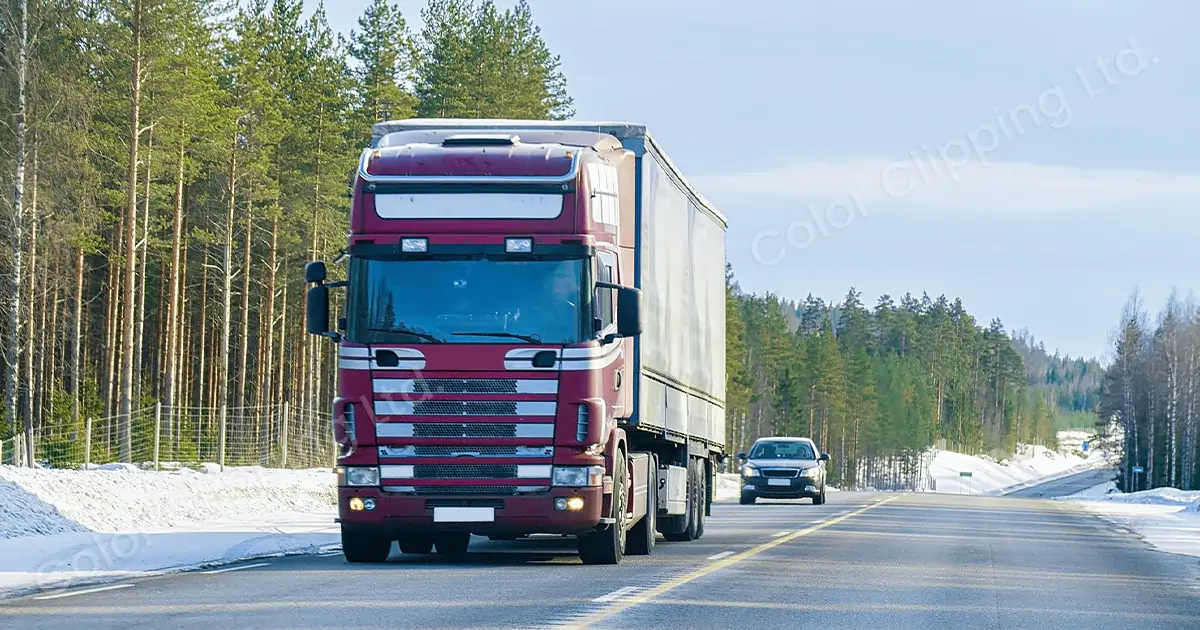
Add Context to the Scene
It is for the background. Whether you take images in the field or city, capture the setting/background in a way that viewers clearly know which setting it is taken. It will help you portray the message you intended. For example, in this image, we can understand, that a girl is studying on the balcony in the morning. Because the fog can be clearly seen in the background.
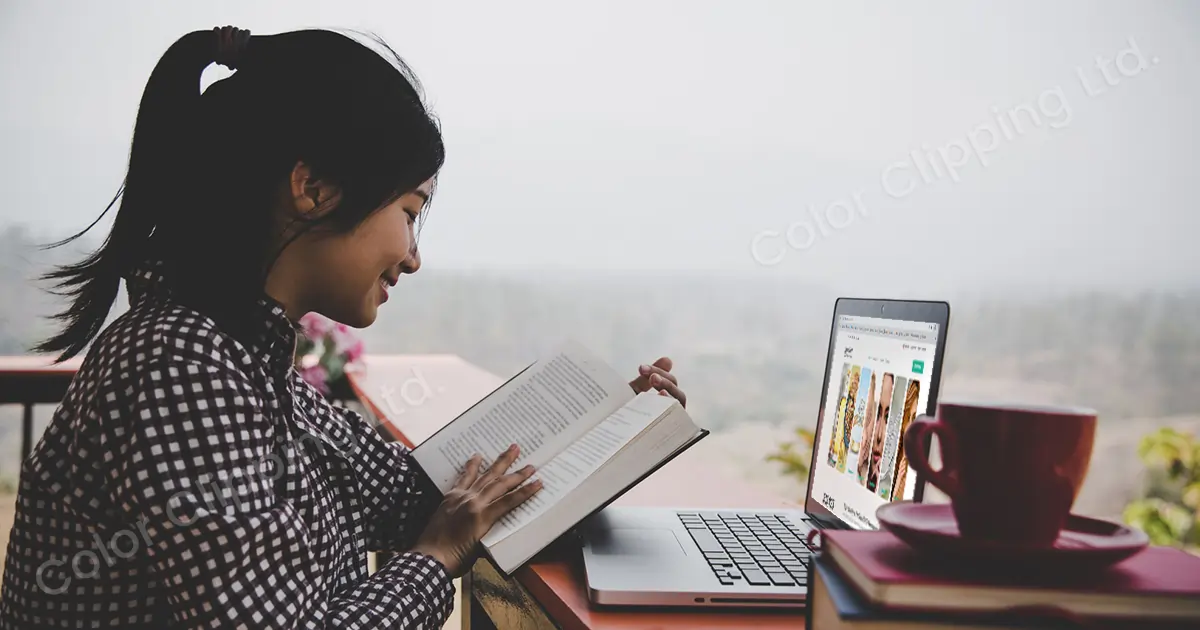
You can also add more importance to the character by showing the environment they are in. Take the camera below eye level and tell the model to look up or do other poses, and capture the moment. As the picture is taken from a low angle, it will cover more area in the picture allowing the viewers to enjoy the scenery.
Show the Face and Background
Low viewpoint photography does not only mean taking images from the ground. Anything that is below eye level can be considered low angle photography. So, for capturing the subject’s face and background in focus, take your camera to shoulder/chest level. You can take amazing portrait images with this method.
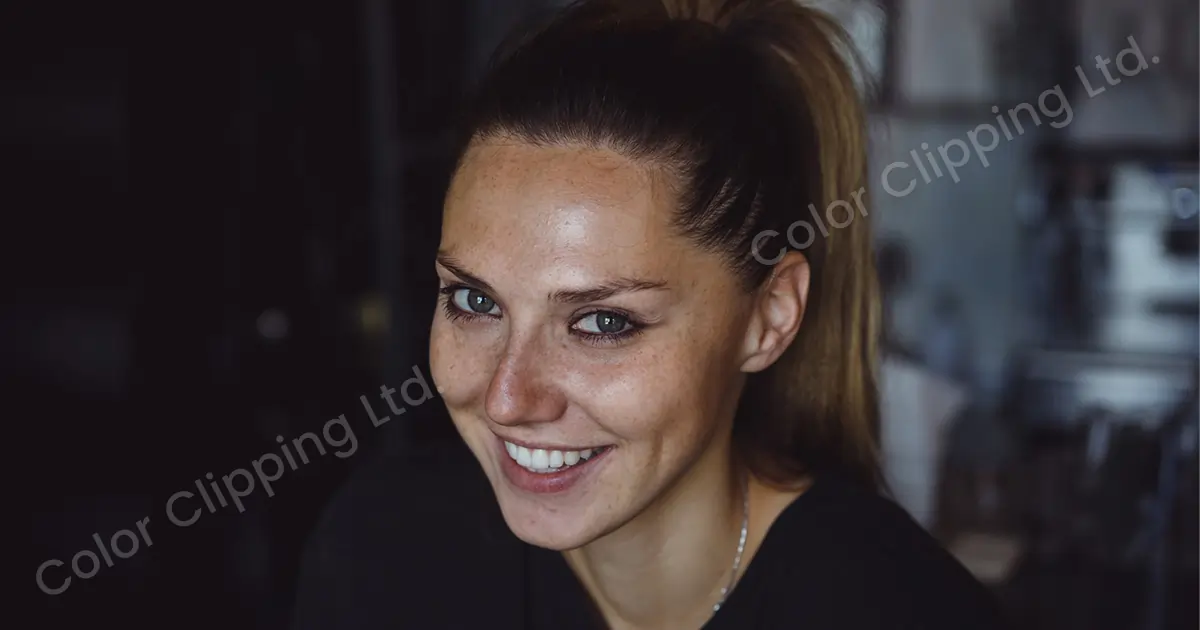
Remove Every Flaw With Retouching
Low-angle images can be taken in any location like streets, fields, homes, etc and many distractions can be captured during photography sessions. So, you need to retouch the portrait to remove all flaws.
- Check the lighting in the picture. Since the low angle images are taken in bright light or nighttime, check if the lighting is correct. If the images are looking too bright or dull, fix the lighting. The lighting should look gentle and realistic.
- Remove any dirt, dust, and distractions. Since the images are taken outside, there can be many distractions in the image. For example, a person walking by or a tree that is distracting the image, etc. remove those and retouch the area. Also, check for dust and dirt in the image.
- Remove model’s stray hair. Retouch the skin. Make the skin soft and glow with retouching. If the model has any dark circles or spots, edit those as well.
- Do color correction of the objects in the setting. Like, if the lighting reflection falls on the building, it may change its actual color so correct it in Photoshop.
- Add a pleasant touch with soft shadows. Soften the shadows of the model, buildings, stairs, or any objects that you have used in the image.
Helpful Tips for Amazing Low Angle Photography
Here are some tips on how to take low angle photos.
- Use a wide-angle lens to make the subjects appear enormous. Any lens that is 35mm or below can be used. This lens has a natural field of view which helps shoot blindly. It increases the effect and captures the background well. So, you can easily take the images without looking at the viewfinder.
- Shoot the pictures with an LCD screen or tilt screen of your camera. You will have an easier time capturing good low angle shots with an LCD screen and tilt screen.
- Use a fast shutter speed like 1/1000 to capture raw moments.
- Understand how horizon works in photography to capture the subject most dramatically. It will help you convey your story.
- Because of shooting from a low angle, the model may feel uncomfortable. So, do not be impatient. Wait for them to calm down and get used to the camera angle then do the photography. Make sure your model is having fun during the process.
- Shoot Blindly to save time. Low-angle images are hard to take as you need to lie down or keep the camera on the ground. So, I suggest taking lots of images without looking at the viewfinder. Then go through the images and select the best ones from those.
Final Verdict
People like to see unusual things and low angle photography is an amazing way of showing things from unusual angle and perspectives. It creates dimension in images and creates an illusion where everything seems larger than life. Whether you are an animal, product, model, or any other field photographer, this photography style will help you get highlighted in the crowd. So, experiment with the camera on the ground as much as possible to get new ideas and capture the viewer’s heart with beautiful stories.
Lastly, headshots are also taken from a lower angle. So, if you also capture headshots, take our headshot retouching service to enhance your images. Check our company’s skills by taking a free trial and decide for yourself.
FAQ
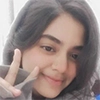
Anika Wahab
Hello, it's Anika, Content Executive from Color Clipping Ltd with a devotion to contributing my skills and knowledge more simply. Keep learning and growing with us.
Categories
Tag Cloud
Latest Stories

